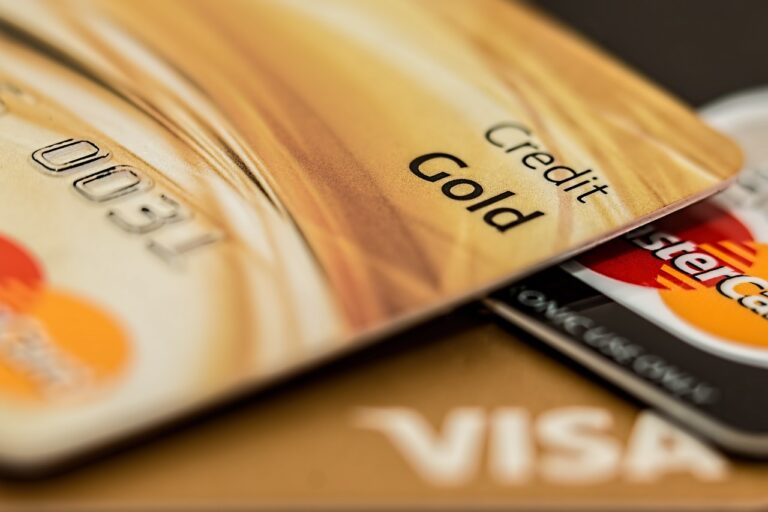Crypto credit cards are a type of financial tool that combines the functionality of a traditional credit card with the security and decentralization of cryptocurrencies.
These cards allow users to spend their cryptocurrency funds in the same way as traditional credit cards, with the added advantage of being able to convert the cryptocurrency into fiat currency at the point of sale.
The basic operation of crypto credit cards involves loading cryptocurrency funds onto the card, using it for purchases, converting the cryptocurrency into fiat currency, and then repaying the funds as with a traditional credit card.
The card operates on the underlying blockchain technology, making transactions secure and transparent. With the growing popularity of cryptocurrencies, crypto credit cards have become an increasingly popular alternative to traditional credit cards for those looking for a more secure and efficient way to manage their finances.
Table of Contents
How crypto credit cards work
In order to use a crypto credit card, users must first sign up with a card issuer and undergo a verification process. This typically involves providing personal information and proof of identity and linking the card to a cryptocurrency wallet. The user can then transfer their desired cryptocurrency to the card issuer’s platform, where it is automatically converted into fiat currency and stored on the card.
When making a purchase, the card issuer will automatically deduct the required amount of fiat currency from the card balance and complete the transaction. The card issuer will also handle any foreign currency conversions necessary for international transactions.
Some crypto credit cards also offer additional benefits, such as rewards and cashback programs, just like traditional credit cards. However, it’s important to remember that crypto credit cards may have higher fees than traditional credit cards and that the value of cryptocurrencies can be volatile, which can affect the value of funds stored on the card.
What to consider with a crypto credit card
When considering a crypto credit card, it’s important to take into account the following factors:
- crypto credit cards often have higher fees compared to traditional credit cards. Fees can include annual fees, foreign transaction fees, and conversion fees. Be sure to carefully review the fees and compare them to other options before making a decision;
- rewards and cashback programs: some crypto credit cards offer rewards and cashback programs like traditional credit cards. Consider what types of rewards are offered and whether they align with your spending habits;
- security: as with any financial product, it’s important to ensure that your funds are secure. Make sure to choose a reputable card issuer that uses state-of-the-art security measures to protect your funds;
- consider the network with which the crypto credit card is affiliated (e.g., Visa, Mastercard) and whether merchants widely accept it;
- crypto credit cards convert cryptocurrencies into fiat currency for use. The conversion rate can vary and impact the value of your funds. Make sure to understand the conversion process and any associated fee;
- cryptocurrencies are known for their volatility. The value of your funds stored on a crypto credit card can fluctuate rapidly. Consider whether this is a risk you are comfortable with before using a crypto credit card;
- consider the options for repaying the funds you have spent. This include whether you can repay in cryptocurrency or if only fiat currency is accepted.
Crypto cards that are available now
There are several crypto credit cards available now, including:
- Coinbase card: a Visa debit card that allows users to spend their cryptocurrency balances directly from their Coinbase account;
- BitPay card: A Mastercard debit card that enables users to spend their Bitcoin and other cryptocurrencies anywhere Mastercard is accepted;
- Crypto.com card: a debit card that supports multiple cryptocurrencies, including Bitcoin, Ethereum, and others;
- Binance card: a Visa debit card linked to a Binance account. It allow users to spend their cryptocurrency balances anywhere Visa is accepted;
- BlockFi card: a Visa debit card linked to a BlockFi account. It allows users to spend their cryptocurrency balances anywhere Visa is accepted;
- Nexo card: a Mastercard debit card linked to a Nexo account. It allowing users to spend their cryptocurrency balances anywhere Mastercard is accepted.
These are just a few examples of the crypto credit cards currently available. It’s important to research each card and its features to determine which one best fits your needs. Additionally, new options may become available as the crypto credit card industry continues to evolve.
Crypto credit cards, which one to choose
Crypto credit cards provide a convenient and accessible way for users to spend their cryptocurrency balances. With a crypto credit card, users can make purchases anywhere the card’s network (e.g., Visa or Mastercard) is accepted, without having to go through the process of converting their cryptocurrency to fiat currency each time.
However, it’s important to consider the fees, security, network acceptance, currency conversion, cryptocurrency volatility, and repayment options before choosing a crypto credit card. With so many options available now, it’s crucial to carefully research and compare each card to determine which one best fits your needs.
Whether you’re a cryptocurrency enthusiast or simply looking for a more convenient way to spend your funds, a crypto credit card may be worth considering.












